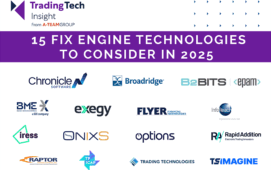If there’s been a sub-theme to recent activity in the reference data marketplace, it’s sure been bond evaluations. Readers of Reference Data Review have witnessed the flurry of product offerings, positioning and poachings among the major suppliers, with Reuters, Bloomberg, Standard & Poor’s and Thomson Financial all attempting to enter a marketplace long dominated by Interactive Data’s FT Interactive Data unit.
And now, the question of pricing illiquid securities has become a major factor in the to’ing and fro’ing between regulators and financial services firms as the wrestle over specific provisions of the EU’s Markets in Financial Instruments Directive (MiFID). This month saw the first major skirmish between the two sides, as it appeared that the industry finally woke up to the fact that MiFID will indeed impact their businesses.
Our sister publication – MiFID Monitor – has tracked the whole saga over the past few months. Things kicked off in May, with the release of the U.K. Financial Services Authority’s discussion paper around best execution, a key MiFID requirement. In the paper, the FSA proposed the use of benchmark pricing to underpin fair valuations for securities that are not actively traded and therefore for which price discovery can be difficult and opaque. The FSA’s proposals were supported by analysis from consultants IBM, which had been tasked with investigating the feasibility of adopting such a scheme.
At the time, MiFID Monitor suggested that proposal on the use of benchmark pricing – which would require trading firms to publish their pricing methodologies to the marketplace – would be unpalatable to financial institutions wary of displaying their proprietary pricing models before the prying eyes of their rival and, yes, their customers.
Sure enough, the industry has come back with an attack on the FSA proposal and on the IBM analysis, which perhaps foolhardily omitted to solicit input on benchmarking from real-life industry participants. Four trade groups – the London Investment Banking Association (Liba) and, acting in tandem, the International Capital Markets Association, the International Swaps and Derivatives Association and the Bond Market Association – have issued comment papers on the proposal that assert that it’s impractical and possibly damaging to the marketplace.
Full details of the spat are available in this month’s edition of MiFID Monitor, downloadable from our web-site at www.mifidmonitor.com. For us, though, the skirmish underscores the difficulty in obtaining sensible, fair and consistent valuations for illiquid securities. Expect to see more product offerings from the big vendors in this space, possibly involving teaming up with specialist players in order to satisfy the need of very narrow vertical segments of the OTC marketplace. IDC has already teamed with Markit Group. Others will doubtless follow suit with alternative speciality providers as they seek to carve out niches across the spectrum of illiquid instruments.
Subscribe to our newsletter




